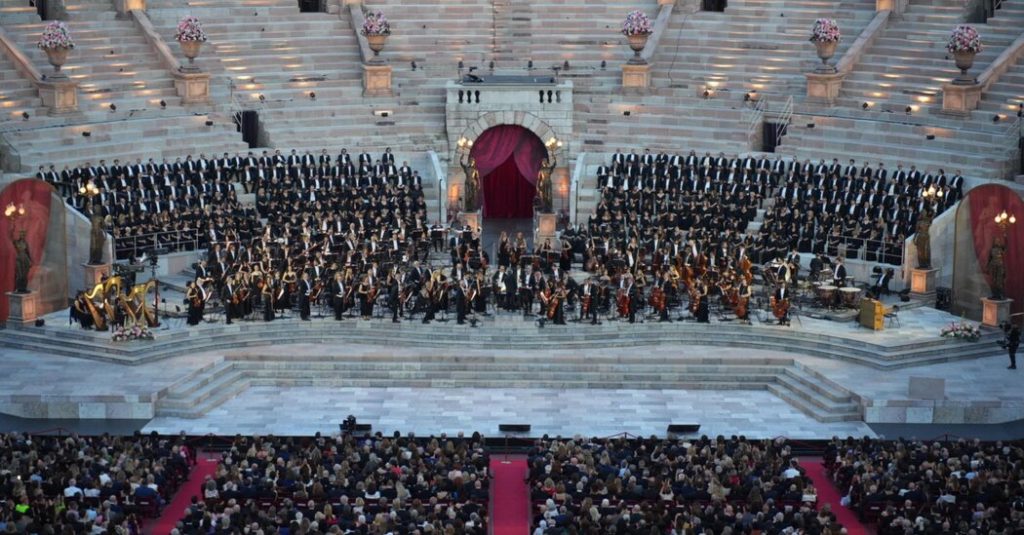Hundreds of performers gathered at the Arena of Verona to celebrate the addition of opera singing in Italy to the United Nations cultural organization’s Representative List of the Intangible Cultural Heritage of Humanity. The concert featured iconic operatic pieces, an oversized orchestra and choir, and A-list soloists, all under the baton of conductor Riccardo Muti. The event aimed to showcase the cultural impact of opera around the world and was attended by high-profile dignitaries, glitterati, and ambassadors from opera-loving countries. While the majority of the campaign for recognition was led by a previous government, this achievement was seen as a win for Italy’s conservative government and its focus on promoting Italian culture.
The concert was a coming together of Italy’s 12 opera theaters and conservatories, culminating in a grand celebration of Italian opera. Despite the emphasis on promoting Italianness in cultural institutions, many of the soloists in the concert were not Italian, highlighting the global appeal of opera. The significance of opera in Italy was compared to Shakespeare in Britain, emphasizing its importance as a national theater. The collaboration of various opera houses and music professionals showcased the unity and collective celebration of Italian opera.
The history of operatic theater in Italy dates back to the 17th century, with its origins in Florence and expansion to other cities like Venice. The music quickly spread throughout Europe and the rest of the world, with traveling musicians performing arias in various settings. The Italian language plays a crucial role in opera, with phrases of operatic origin integrating into everyday speech. The gala concert was seen as a testament to the government’s commitment to safeguarding and promoting opera, marking a shift from past failed attempts to secure U.N. honors for Italian opera.
Throughout the evening, the audience was treated to performances from beloved operas like Rossini’s Barber of Seville and Puccini’s La Bohème. The elaborate staging of scenes, including costumes, children as altar boys, and a grand choir, added to the spectacle. Despite some opera purists objecting to the enthusiastic applause and participation of the audience, the night was a celebration of the emotional depth and power of opera. The event concluded with a rousing duet from La Traviata, completing a memorable evening that left attendees in awe of the art form.
The concert drew parallels to the impact of the original Three Tenors concert in 1990, which brought opera to a wider audience and increased its popularity. There were hopes that Friday’s concert could have a similar effect internationally, potentially touring the world as a representation of Italian opera. The government’s focus on promoting opera as a cultural treasure was evident throughout the event, with plans to continue building on the UNESCO recognition. The evening not only celebrated Italian opera but also hinted at future initiatives to promote Italian cuisine and other aspects of the country’s rich cultural heritage on the global stage.
In closing, the concert at the Arena of Verona was a grand showcase of Italian opera’s cultural significance and global appeal. It brought together a diverse array of performers and showcased the unity of Italy’s opera theaters and conservatories. As the concert concluded with wine toasts and hopes for future initiatives, it was clear that the government’s commitment to promoting opera as a vital part of Italy’s cultural heritage was unwavering. The event served to highlight the emotional depth and universal impact of opera, setting the stage for further celebrations of Italian art and culture on the international stage.








